 |
|
A TIME FOR NEW BEGINNINGS...AND NEW CONNECTIONS
|
There's just something about spring. Even when the winter wasn't all that bad (did we even see snow?) something about the longer days, warmer sunshine, and blooming flowers can strike joy in the heart of even the most dubious cynic.
A poem from Walt Whitman's treasured collection, Leaves of Grass, captures the feeling of the season well. It's called "The First Dandelion."
Simple and fresh and fair from winter's close emerging,
As if no artifice of fashion, business, politics, had ever been,
Forth from its sunny nook of shelter'd grass - innocent, golden,
calm as the dawn,
The spring's first dandelion shows its trustful face.
Should we as advocates even think about adopting the attitude of the first dandelion? After all, we know how much work there is to be done. We know that with flowers come pollen. And we have allergies to treat. Should we really be showing a trustful face?
I'd argue that this season of emerging brightness offers us a chance to, like that first dandelion, refresh our spirits and think about the opportunities ahead.
There is a lot to be hopeful about as we blossom into spring. Take a look at our
NCGA Bill Tracker to see some promising plans for broadband, health care, transportation, education, and more on the state level. With a
Congressional recess on the horizon, it's also the perfect time to schedule a meeting with your representative and talk about issues that matter to you while they are at home.
What's more, with our society divided like never before, adopting a trustful face might be just the thing to bring us together. The Rural Center is hard at work breaking down some of the barriers that divide us, and we hope you will join us this spring in that important work.
Tune in tomorrow for a webinar focused on bridging the rural/urban divide. We'll be talking with the Wilmington Chamber of Commerce and the Urban Institute at UNC-Charlotte about the connections between rural and urban communities and how our state can move forward by focusing on what unites rather than what divides us.
And, there's no better way to show how we are united than by showing up on Tuesday, May 9, at the first-ever statewide
Rural Day. We already have people coming from the Outer Banks to the Smokey Mountains to celebrate the assets of our rural communities and to showcase that value to our state's leaders. It's not too late to join them - registration is open, and totally free. Join us in Raleigh for this historic event, and bring as many friends as you can fit in your car!
Our communities do face
challenging issues, and turning from them to smell the blossoming flowers is not going to solve them. But spring is a better time than any to look around in these extra hours of daylight to see all the blessings we do have, and to cultivate the growth of budding assets that could transform our communities.
Let's use this season to forge new connections, rekindle ones that we've let slide, and get a fresh start on making our communities into all we know they can be.
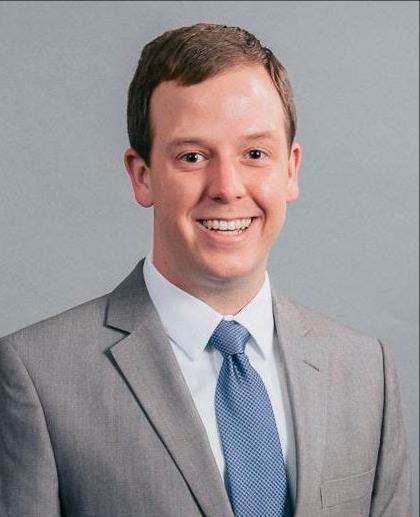
John Coggin
Director of Advocacy
|
|

 APRIL 5: WEBINAR - BRIDGING THE RURAL/URBAN DIVIDE APRIL 5: WEBINAR - BRIDGING THE RURAL/URBAN DIVIDE
Connections that will drive our state forward
Join us on Wednesday, April 5, at 3:00 p.m. as we talk with Jeff Michael from the Urban Institute UNC-Charlotte and Natalie English from the Wilmington Chamber of Commerce about the dreaded "rural/urban divide" that has captured the imaginations of many people since the 2016 election.
Are we truly that divided? What connections and inter-dependencies exist between the rural and urban areas in North Carolina? And, most importantly, what policies could be implemented to help lift up people in all communities in North Carolina?
You don't want to miss this dynamic webinar that will break down the idea of the "divide" between rural and urban, and give you ideas about how to incorporate messages about the important connections among all our communities in your advocacy.
Register today!
|

MAY 8: REEL RURAL
Special event to kick off Rural Day
If you didn't already have enough reason to attend Rural Day, there's more!
The event will start with a "meet and greet" reception with four documentary filmmakers who have recently produced films featuring towns in North Carolina. Then, we will gather to screen portions of their films and start a discussion about how to tell the stories of our rural communities in uplifting, creative ways.
The night's conversation will be hosted by
Ryan Stancil
from
Bit & Grain
and will feature:
This is an event you don't want to miss. Space is limited, so
register today, whether you're coming to town early for Rural Day or just want a night at the movies!
|
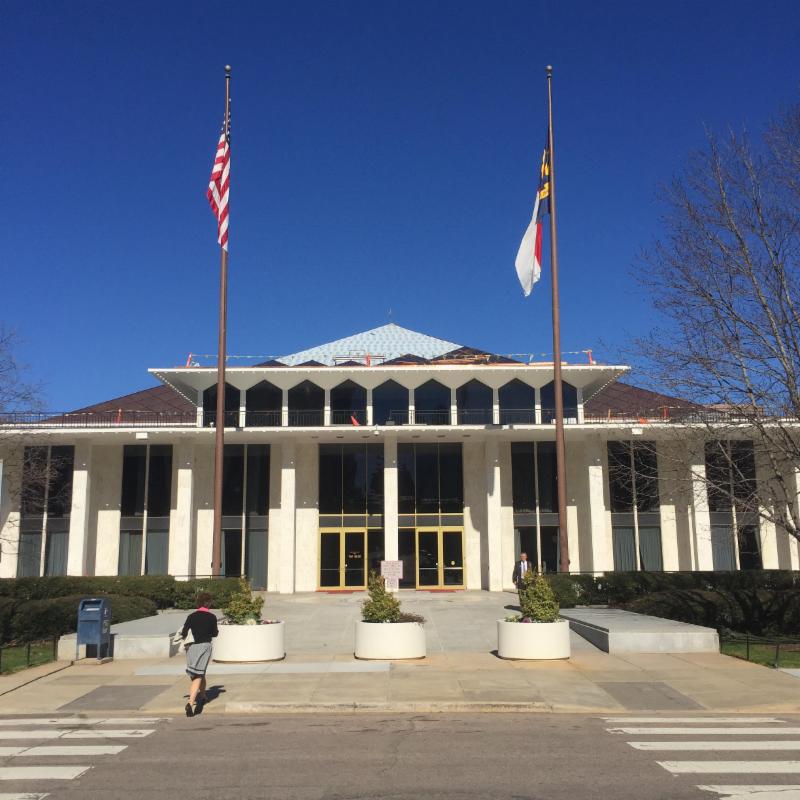
 MAY 9: RURAL DAY MAY 9: RURAL DAY
Gov. Cooper & Lt. Gov. Forest Confirmed
For the first time in our history, the Rural Center will be hosting a statewide Rural Day on Tuesday, May 9.
What does this mean? It is your chance to join with hundreds of other rural citizens and advocates to communicate to our leaders a positive message about the value of rural North Carolina.
The day will be filled with one-on-one and group meetings with legislators and executive leaders, educational sessions about various issues facing rural North Carolina, and plenty of time to network with other rural advocates from across the state.
Governor Cooper has just announced he will be addressing attendees at our morning convocation, and Lt. Gov. Forest will be giving a remote video message as he travels. Stay tuned for upcoming announcements of other state and local leaders who will be sharing their visions for rural North Carolina.
|
|
NEWS FROM THE RURAL CENTER
|
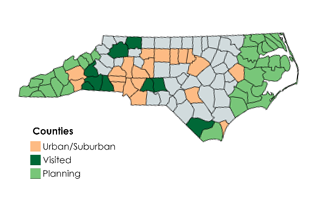
RURAL ROAD TRIP UPDATE
Nine counties in, and many lessons learned
Core to the success of a strong advocacy program are the people on the ground making a difference. The Rural Center spent a year on the road listening to our networks' greatest challenges and opportunities and fashioned the 10 Rural Counts strategies based on their input. Now that we are trying to put these ideas into action, we are going on the road again to inform more people about what is in this plan for rural North Carolina's future and how they can get involved.
Patrick Woodie and John Coggin have visited nine counties in the past month, hosting lively, interactive sessions with citizens and leaders about what is working well in their communities, and where they feel they need to work with others around the state to improve quality of life.
The stories have been wonderful. We have heard how citizens came together in Columbus County after Hurricane Matthew to care for neighbors and get people back on their feet. We have heard about Albemarle's successful rebranding campaign that has positioned the town as a future-focused community. We have heard about the innovations in agriculture happening as we speak in Surry County, and how the county came together in Montgomery to fund a stellar Early College program.
We have also heard about the great opportunities for cooperation across our rural communities. Too many people still do not have access to affordable broadband. Our transportation and water infrastructure are in desperate need of modernization. Healthcare costs remain too high for most people to receive the preventative care they need for a high quality of life. These are issues we must tackle together - and the Rural Center stands ready to connect citizens passionate about these issues so their voices can be amplified across the state.
The Rural Road Trip is just getting started, and we are in the process of scheduling similar conversations in the rest of the 80 counties the Rural Center serves. If you would like to host a meeting about Rural Counts in your county or for your community group, contact John Coggin at
[email protected].
|
ATLANTIC COAST PIPELINE
Rural Center signs letter of support for economic driver for Eastern NC
One of the top 10 strategies of the Rural Counts platform is expanding our transportation and natural gas infrastructure in rural North Carolina. Access to natural gas is a strong competitive advantage for industries growing or locating in North Carolina, and many rural communities' lack of access to this energy source presents a challenge to their growth and flourishing.
Consistent with that vision for expanded access to natural gas in rural places, the Rural Center Board of Directors recently approved a position statement of support for the proposed Atlantic Coast Pipeline, or ACP. A joint project of Virginia Dominion Resources Energy Company, Duke Energy, and Piedmont Natural Gas, the ACP is a proposed natural gas pipeline that would extend 600 miles underground from Harrison County in West Virginia, southeast through Virginia and into Robeson County (with an extension splitting from the main root in Northampton County and extending to Chesapeake, VA). The ACP would pass roughly along the route of I-95, through eight North Carolina counties: Northampton, Halifax, Nash, Wilson, Johnston, Sampson, Cumberland and Robeson. The terminus of the ACP will be in Robeson County.
The Federal Energy Regulatory Commission (FERC) is currently accepting public letters on the ACP as part of the federal approval process. After in-depth conversation with the project planners, local leaders, and communities that would be impacted by the pipeline, the Rural Center found that the pipeline would be a strong economic driver for a region that includes some of the most economically-distressed communities in our state, providing consumer savings, tax revenue, economic development opportunities, and much-needed jobs to rural communities.
This week, the Rural Center sent FERC a letter of support for the project, stating that with careful planning, community buy-in, and consideration for environmental impact, the ACP will have strong economic benefits for rural North Carolina.
|
The Big Crunch: Poverty policy shouldn't be one size fits all
Let's think above poverty to help the working poor

The accompanying map highlights the most recent census data for individuals whose incomes are below poverty, and those whose incomes go up to 149 percent of poverty. Why is it important to count individuals just above the poverty rate?
The answer is that the federal definition of poverty has not changed much in recent years. Many reasonably argue that its definition is too constricted. Those whose incomes are just above poverty are generally employed, but are not earning enough to create savings assets for a home, an education, or simply to have an emergency financial cushion. In rural North Carolina, there are approximately
493,777 individuals in this income class -
13 percent of the total rural population.
Overall,
32 percent - nearly one third of all rural North Carolinians - are either in poverty or have incomes in the 100 to 149 percent of poverty income range.
As advocates for change in our communities and in the state, it is helpful to understand more about what constitutes our "poor" population. There is diversity within the population that must inform our response strategies for both policy and practice.
To illustrate this, we've also categorized the poverty population by those whose incomes are 50 percent or less of poverty income and those between 50 and 100 percent of poverty.
Those with incomes at 50 percent or below the poverty level income make up
328,844 individuals or
eight percent of the total rural population. I would say these individuals are chronically poor and in extreme poverty.
There are
779,431 individuals,
11.5 percent of the total rural North Carolina population, with incomes between 50 and 100 percent of poverty income. Research suggests that a significant percentage of this population bobs in and out of poverty based on family circumstances, a lost job, a recession, or lost health insurance. Many, but not all, are working.
I suspect that policy and practice for those in extreme poverty might be different than our policies for those whose poverty situation is more short-term and who are generally working.
And I also suspect our policies are different for those who are between 100 to 149 percent of poverty income, who are usually employed, but nonetheless without the financial cushion to respond to emergencies or save for opportunities.
Without looking at numbers, how do you think this breaks out in your community? Do you know individuals/families who represent one of the three income breakouts I've described? How do we
advocate for them? How do we
work with them? And, perhaps most important, how do we
be with them?
I'll have more thoughts on this in the Rural Center's April newsletter later in the month!
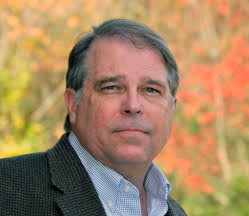
Jason Gray
Senior Fellow, Research & Policy
|
DISPATCHES FROM DC
Updates from the Trump Administration and 115th Congress

Congress begins a two-week congressional district work period, April 10-21. This is a perfect opportunity to meet with your member of Congress at home. Legislative focus continues to be health care reform, tax reform, transportation and infrastructure, trade, and finalizing federal FY 2017 appropriations and beginning the process on FY 2018 appropriations.
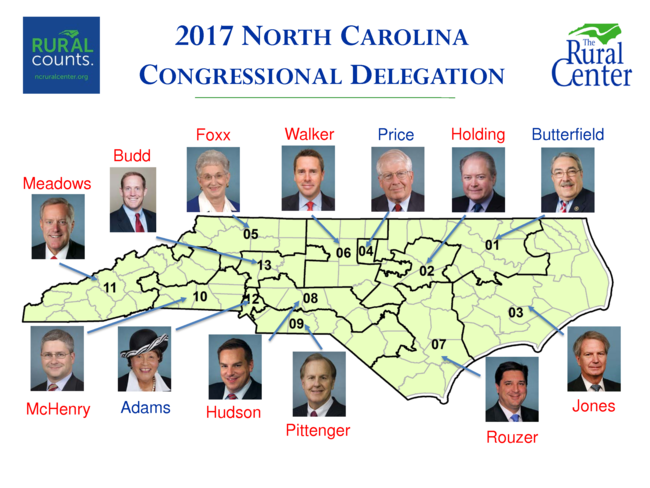
USDA Confirmation
USDA Secretary, former Georgia Governor Sonny Perdue, was approved by the Senate Agriculture Committee on March 30 by a voice vote. His confirmation will now go to the full Senate for approval.
Health Care Reform
Efforts by the White House and Republican congressional leadership were stalled on Friday, March 24, when there simply were not enough votes to approve H.R. 1628, the American Health Care Act. The measure was pulled from the House floor schedule before the vote. Leaders continue to work with the different Republican coalitions, specifically the House Freedom Caucus chaired by Rep. Mark Meadows (NC-11) and the Republican Study Committee led by Rep. Mark Walker (NC-6) to determine a path forward. The White House also has indicated an interest in working with Democrats to develop a bipartisan bill to improve the Affordable Care Act and stabilize a competitive insurance marketplace.
Important dates to keep in mind: June 21 is the deadline for insurance plans to file 2018 rates for ACA's exchange, healthcare.gov, and states will start publicly posting proposed rates around August 1 for state exchanges. Final rates are made public by November 1. Both the presumed decrease in the number of insurance companies participating in ACA resulting in the likely increase in premiums will spur further discussion on health care reform, if action has not occurred before then.
Broadband
By a vote of 50-48 in the Senate and 215-205 in the House of Representatives, Congress used the 1996 Congressional Review Act to approve S.J.Res 34 which nullifies the Federal Communications Commission (FCC) broadband provider consumer privacy rule. The FCC rule stemmed from a 2015 decision to enact Open Internet, or net neutrality, and the October 2016 final rule. The FCC rule required broadband providers to:
- inform consumers at the point of sale about what information they collect, how it can be used, and the circumstances under which it will be shared;
- obtain affirmative consumer consent before sharing sensitive customer information including financial, health, Social Security and precise geo-location information, as well as content viewed; and
- allow consumers to opt-out of having their non-sensitive information shared.
The FCC's disclosure and consent requirements for the regulation of internet service providers (ISPs) were much more stringent than the Federal Trade Commission (FTC), which remain in effect for so-called edge providers, including Amazon.com Inc., Facebook Inc. and Netflix Inc. The resolution nullifies privacy rules that apply to consumer-facing broadband internet providers such as AT&T, CenturyLink, Charter Communications, Comcast, Sprint, T-Mobile, and Verizon.
Proponents for the repeal argued that the FCC created a confusing double standard for these companies and that the Federal Trade Commission already had jurisdiction over these companies' privacy rules. (President Trump indicates he will sign the legislation.) Supporters of the FCC rule are concerned that repeal will leave internet users with no real say in how their broadband service providers can use their personal information for commercial purposes and with no guarantee that their data will be kept reasonably secure.
Appropriations for This Year
Efforts are on-going to negotiate a bipartisan FY 2017 omnibus appropriations bill to approve before April 28 to avert a government shutdown. The plan is to file the legislation after lawmakers return April 24 from their spring recess/congressional district work period. The federal government has been operating at FY 2016 level funding through an FY 2017 Continuing Resolution. The national debt limit has been reached, so Congress also will need to raise the national debt.
Appropriations for Next Year
Hearings have started on the President's FY 2018 preliminary budget proposals released mid-March. A more detailed budget with federal department and agency specific recommendations is expected in May.
Positions on Budget Cuts: On March 23, USDA Secretary Nominee Sonny Perdue testified that he opposed the proposed 29 percent cuts to USDA and would work with Congress to maintain spending for critical rural development and broadband programs. On March 29, HHS Secretary Tom Price defended proposed cuts to the National Institutes of Health and the proposed elimination of the Community Services Block Grant and the Low Income Home Energy Assistance Program, among others.
Other programs facing elimination are the HUD Community Development Block Grant; DOE Energy Star, the Weatherization Assistance Program, and the State Energy Program; DOT Tiger Grants; DOL Senior Community Service Employment Program; Commerce's EDA and Minority Business Development Agency; Treasury's CDFI; and the Appalachian Regional Commission. EPA's state revolving funds and Water Infrastructure Finance and Innovation Act programs would see slight increases, while USDA Water and Wastewater loan and grant program would be cut.
Trade
Before bringing Canada and Mexico back to the negotiating table to renegotiate NAFTA, the White House must consult with Congress before, during and after negotiations. The requirement is part of the 2015 Bipartisan Congressional Trade Priorities and Accountability Act (Public Law 114-26), generally known as Trade Promotion Authority (TPA). Typically, the US trade representative (USTR) is the lead trade negotiator, but nominee Robert Lighthizer has not yet been confirmed. Look for Commerce Secretary Wilbur Ross and White House staff, including North Carolina-native Ray Starling (most recently Chief of Staff for Senator Tillis), to play a pivotal role in NAFTA talks.
Important North Carolina players: Rep. George Holding (NC-2) is on the House Ways & Means Committee and Senator Richard Burr is a member of the Senate Finance Committee, which have jurisdiction over trade agreements. Also important to the discussion are Reps. David Rouzer (NC-7) and Alma Adams (NC-12), both members of the House Agriculture Committee.
Debby Bryant
Federal Government Affairs Consultant
|
JONES STREET JOURNAL
Updates from the Cooper Administration and NC General Assembly
The year has gotten off to a fairly slow start on Jones Street, as court contests between the executive and legislative branches, maneuvering over HB2 repeal, and a close watch on federal action on multiple issues have kept state policymakers from moving quickly on top priorities. We can expect things to pick up soon, though, with the ongoing debate about HB2 largely behind us and the state budget process picking up within the next month.
Governor Cooper's Cabinet
One of the legal battles dominating the first months of the year has been Governor Cooper's challenge to a new mandate for Senate confirmation of his top cabinet picks. Now that a Superior Court panel has ruled that the legislature has the authority to confirm his picks, hearings are underway.
Several of Governor Cooper's picks have quickly passed Senate review. These include:
- Larry Hall, Military & Veterans Affairs
- James Trogdon, Transportation
- Erik Hooks, Public Safety
Hearings have been held for three other nominees, and they are currently awaiting a full Senate vote:
- Susi Hamilton, Natural & Cultural Resources
- Mandy Cohen, Health & Human Services
- Machelle Sanders, Administration
One additional nominee, Michael Regan (Department of Environmental Quality), is awaiting Senate committee hearing, and Cooper has yet to name heads for two agencies: Department of Revenue and the Department of Information Technology.
General Assembly
As of Friday, March 31, 547 bills have been introduced in the House of Representatives and another 579 in the Senate, for a current total of 1126 under consideration by the 2017-18 General Assembly session. Several major bill filing deadlines have already passed in both houses, so the main date to watch for in the coming month is April 29. That is the Crossover Deadline, by which time any non-monetary bills for the session must have approval by at least one chamber.
We are already following several bills of potential importance to rural communities using our
Bill Tracker. Keep watching our
Advocacy Toolkit for weekly updates to this document, which groups bills by the Rural Counts strategies.
As the General Assembly session progresses and bills take clearer shape, the Rural Center will begin identifying bills that we support or oppose - be on the lookout for opportunities to speak up about state legislation that will impact your community.
Superintendent's Literacy Program
Yesterday, newly elected State Superintendent Mark Johnson announced a
new literacy program to give students greater access to books and help them reach reading proficiency at grade level.
The focus of the program, called NC Reads, will be collecting and distributing books for preK-5 students to read during the summer. It will also create an account on the online literacy software
myON for every K-5 student in the state.
Of particular significance is Johnson's proposal to hire a new deputy secretary for early childhood education. If approved by the legislature, this position would study and help craft a statewide strategy for increasing access to quality preschool.
The Rural Center recognizes the great need for getting kids off to a strong start through early childhood education, and that rural areas in the state are often at a unique disadvantage for access to quality programs. We will be closely following developments of the Superintendent's plans and look forward to working with him and other early childhood advocates to strengthen education offerings for young children across North Carolina.
Continued Updates
With the Cooper Administration staffed and the General Assembly session well under way, the Rural Center will keep you in the loop on fast-moving developments. Want to learn about opportunities to act on issues that matter to you?
Sign up today as a Rural Counts advocate and let us know the areas where you want to help.
|
|
 |
BERNSTEIN FELLOWS APPLICATION OPEN
Leadership training opportunity for rural health practitioners
The purpose of the Jim Bernstein Community Health Leadership Fellows Program is to develop future leaders to work in, and improve the health status of, rural and underserved communities in North Carolina. The Bernstein Fellows Program identifies and supports the work of outstanding individuals already working in health services in these areas and shares Jim's commitment and passion for rural health.
When selected, Fellows receive:
- Educational opportunities and individual mentoring through a network of professionals associated with the Foundation.
- Up to two years of funding to support a project they develop that will improve the health of their community.
After the two-year fellowship, Bernstein Fellows will not only have a clear understanding of rural and underserved community needs, but will have the leadership skills necessary to engage and collaborate with others to improve the health and economic state of these communities.
|
K-12 INTERNET ACCESS AT HOME SURVEY
Help the state of NC better understand the "homework gap"
Nationally, seven in 10 teachers assign homework that requires internet access. But an estimated
five million
households with school-age children do not have internet access at home. Students that fall into this "homework gap"-households where internet access is limited or unavailable-lag behind in education and are less competitive in the workforce.
Data on the number of households affected by the homework gap in North Carolina does not currently exist. This data is necessary to enable policy makers and education stakeholders to design solutions.
|
|
|
|
|